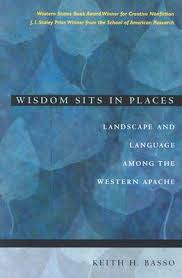50:070:213:01, Fall 2018
Tuesdays & Thursdays, 11:10-12:30
Armitage Hall, Room 121
Professor Cati Coe
405-407 Cooper Street, Room 203
Office hours: Tuesdays, 3:30-4:30pm, Thursdays, 10:00-11:00, or by appointment
phone: (856) 225-6455
email: ccoe@camden.rutgers.edu
Course website: https://caticoe.camden.rutgers.edu/courses/introduction-to-cultural-anthropology/
Course Description
The purpose of this course is to introduce you to one of the four major fields of anthropology—cultural anthropology—and to give you an appreciation of the diversity of ways that people organize their social life, from their marriages to their politics, from their goals in life to the ways that they organize social and financial resources. After a brief introduction to key concepts in the field of cultural anthropology and a discussion of methods of research, we will begin to immerse ourselves in the worldviews and perspectives of rice farmers in Guinea Bissau, strawberry pickers in Washington State, surrogate reproduction in India, ordinary Buddhists in Thailand and how they solve problems, and Western Apache narratives of place and morality. Attention will be given to the themes that cut across these ethnographies: modes of production, conceptions of the self, the body and health, ways of knowing and not knowing, and power.
Five books are available at the campus bookstore and on reserve at the circulation desk at Robeson library:
|
Joanna Davidson’s Sacred Rice |
|
Amrita Pande’s Wombs in Labor |
|
Keith Basso’s Wisdom Sits in Places |
Please note: This is a reading intensive course. You will fail this course if you do not keep up with the readings. Please plan your time well to complete the books. Do not let yourself fall behind!
Global Communities
This course fulfills the new general education requirement in Global Communities.
Taking a variety of disciplinary approaches to the examination of societies, economies, and political systems, as well as ideas and beliefs and how they are formed, courses in Global Communities should introduce students to the diverse ways in which humans have organized their social relations.
Upon completing a course in this category, students should be able to do at least two of the following:
- Describe ways in which communities around the globe have been interconnected and interdependent historically and/or in the present in terms of the movement of ideas, culture, people, money, and goods.
- Identify central practices, institutions, and ideas of regions, nations, or peoples outside the U.S. as well as how the representations of those regions, nations, or peoples have been used and contested.
- Recognize how issues of difference (racial, religious, gender, etc.) have been treated in non-U.S. cultures and societies and/or in a global context.
- Analyze a cultural, economic, environmental, geographic, historical, political, linguistic or literary, scientific and/or sociological issue facing one or more countries, or globally.
- Explore issues that transcend national borders and their implications for policy and practice.
- Describe the point of view of peoples from outside the U.S. on specific issues.
The course fulfills all these goals.
Requirements
1) Three Examinations (20% each)
- Dates: 1st exam October 9th, 2nd exam November 13th, final exam December 18th, 11:30-2:20
- Questions (definitions, short answer, and essays) on the exams will be derived from the readings, films, class lectures and discussions
- You should attend class and pay careful attention to class lectures and discussions, taking detailed notes. Powerpoints are located on sakai.
2) Five Quizzes (4% each)
- Dates: September 20th, October 11th, October 25th, November 15th, and November 29th
- Quizzes (short answer, multiple choice, true and false) are to measure your comprehension of material in the assigned readings.
- These quizzes are given at the start of class, with closed notes and closed book.
- No one will be admitted once the quiz begins until after the quizzes are collected.
3) Papers (5% each)
- 4-5 page paper comparing rice farmers and reflecting on rice in the United States: due October 2nd
- 4-5 page paper comparing film and book representation of surrogacy and examining your own beliefs about birth/surrogacy
4) Attendance and Participation (10%)
- Participation is strongly encouraged.
- Be attentive in class, avoiding distracting yourself and others with focus on your cellphone or laptop.
- Late arrivals and early leavings are disruptive to your learning and the concentration of others, and will be noted as part of your participation grade. Plan to come to class on time and stay until the class ends.
To do by before class on September 6th:
- Get a NetID if you don’t already so that you can access library resources online and from home: https://netid.rutgers.edu/index.htm
- Know how to access your Rutgers scarletmail email account, as all communication from me about the course will go to this email account.
- Have your photo taken at the Impact Booth at the Campus Center, if you do not have one already
- Obtain the books at the University District Bookstore or through other avenues
- Read the single reading in the library reserves.
- Review Rutgers’s policy on academic integrity.
Schedule of Readings, Films, Quizzes and Examinations
| Date | Topics | Exams | Reading due |
| September 3- September 18 |
Some Concepts, A Bit of History, and a Guide to Reading the Texts | ||
| September 4 |
Orientation and Requirements
Lecture: What is Cultural Anthropology? |
Begin reading Sacred Rice |
|
| September 6 |
Lecture: What to Look for in Assigned Ethnographies and Films
|
1) Due: “Body Ritual among the Nacirema” by Horace Miner, American Anthropologist (1956) (on reserve)
2) Continue reading Sacred Rice
|
|
| September 11 |
Lecture: The Concept of Culture and the Nature of Cultural Systems
|
Continue reading Sacred Rice |
|
| September 13 |
Lecture: The Concept of Culture and the Nature of Cultural Systems, continued
Class Resources: Tibetan Rap and Obrafor, “Kwame Nkrumah” (1999) and Cloth |
Continue reading Sacred Rice |
|
| September 18 |
Lecture: On the Conduct of Inquiry in Cultural Anthropology
|
Continue reading Sacred Rice
|
|
| September 20-October 4 |
Rice Farming in Guinea Bissau |
||
| September 20 |
Lecture: Modes of Production |
Quiz 1: On Sacred Rice
|
Sacred Rice completed.
Begin reading Fresh Fruit, Broken Bodies
|
| September 25 |
No class. Watch “Inside Rice.” |
Continue reading Fresh Fruit, Broken Bodies
|
|
| September 27 |
No class. Visit the local grocery store and do the first paper assignment. |
Continue reading Fresh Fruit, Broken Bodies
|
|
| October 2 |
Lecture: Kinship
|
Paper #1 due | Continue reading Fresh Fruit, Broken Bodies |
|
October 4
|
Lecture: Cultural Change |
Continue reading Fresh Fruit, Broken Bodies
|
|
|
October 9 |
Exam #1 |
Exam #1 |
|
| October 11- October 23 |
Industrial Agriculture in the United States |
||
| October 11 | Lecture: Modes of Production Revisited | Quiz 2: On Fresh Fruit, Broken Bodies | Fresh Fruit, Broken Bodies completed Begin reading Wombs in Labor |
| October 16 |
Lecture: Structural Violence and Agency | Read Wombs in Labor |
|
|
October 18
|
Lecture: Health and Biomedicine |
Continue reading Wombs in Labor
|
|
|
October 23
|
Lecture: Race as a Cultural Concept Resource: American Anthropological Association’s “Understanding Race” exhibit |
Continue reading Wombs in Labor |
|
| October 25- November 8 |
Surrogate Reproduction in India |
||
| October 25 |
Lecture: Modes of Exchange | Quiz 3: Wombs in Labor |
Wombs in Labor completed Begin reading Living Buddhism |
| October 30 |
Film: “Made in India” (2010) part 1, by Rebecca Haimowitz and Vaishali Sinha | Continue reading Living Buddhism |
|
| November 1 |
Film: “Made in India” part 2 | Continue reading Living Buddhism |
|
| November 6 |
Lecture: Reproduction as Labor, Stratified Reproduction, and Kinship | Paper #2 due | Continue reading Living Buddhism |
| November 8 |
Lecture: Return to Agency & Structure | Continue reading Living Buddhism | |
| November 13 |
Exam #2 | Exam #2 | |
| November 15- November 23 |
Buddhism in Shaping Emotion & Agency |
||
| November 15 |
Lecture: Religion | Quiz 4: On Living Buddhism |
Living Buddhism completed Begin reading Wisdom Sits in Places |
| November 20 |
Lecture: Cross-Cultural Psychology, the Case of Sen, Agency and Structure
|
Continue reading Wisdom Sits in Places |
|
|
November 22
|
No Class: Thanksgiving
|
Thanksgiving | |
| November 27 |
Lecture: Fieldwork
|
Continue reading Wisdom Sits in Places |
|
| November 29- December 6 |
Apache Places & Narratives |
||
|
November 29
|
Lecture: History, Kinship, and Modes of Production among the Western Apache |
Quiz 5: On Wisdom Sits in Places |
Wisdom Sits in Places completed |
|
December 4
|
Lecture: Language
|
||
| December 6 |
Lecture: Morality and Moral Action
|
||
| December 11 |
Class Resources: Online stopwatch |
||
| Tuesday, December 18th 11:30-2:20pm |
Final Exam
|
Final Exam |
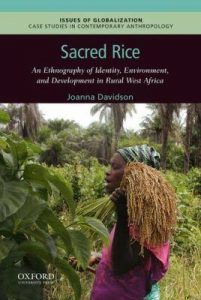
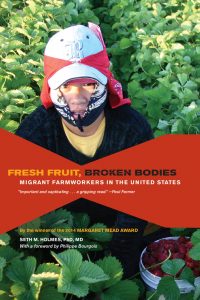 Seth Holmes’s Fresh Fruit, Broken Bodies
Seth Holmes’s Fresh Fruit, Broken Bodies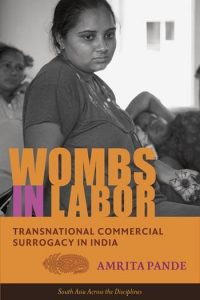
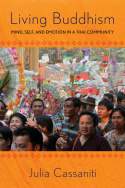 Julia Cassaniti’s Living Buddhism
Julia Cassaniti’s Living Buddhism